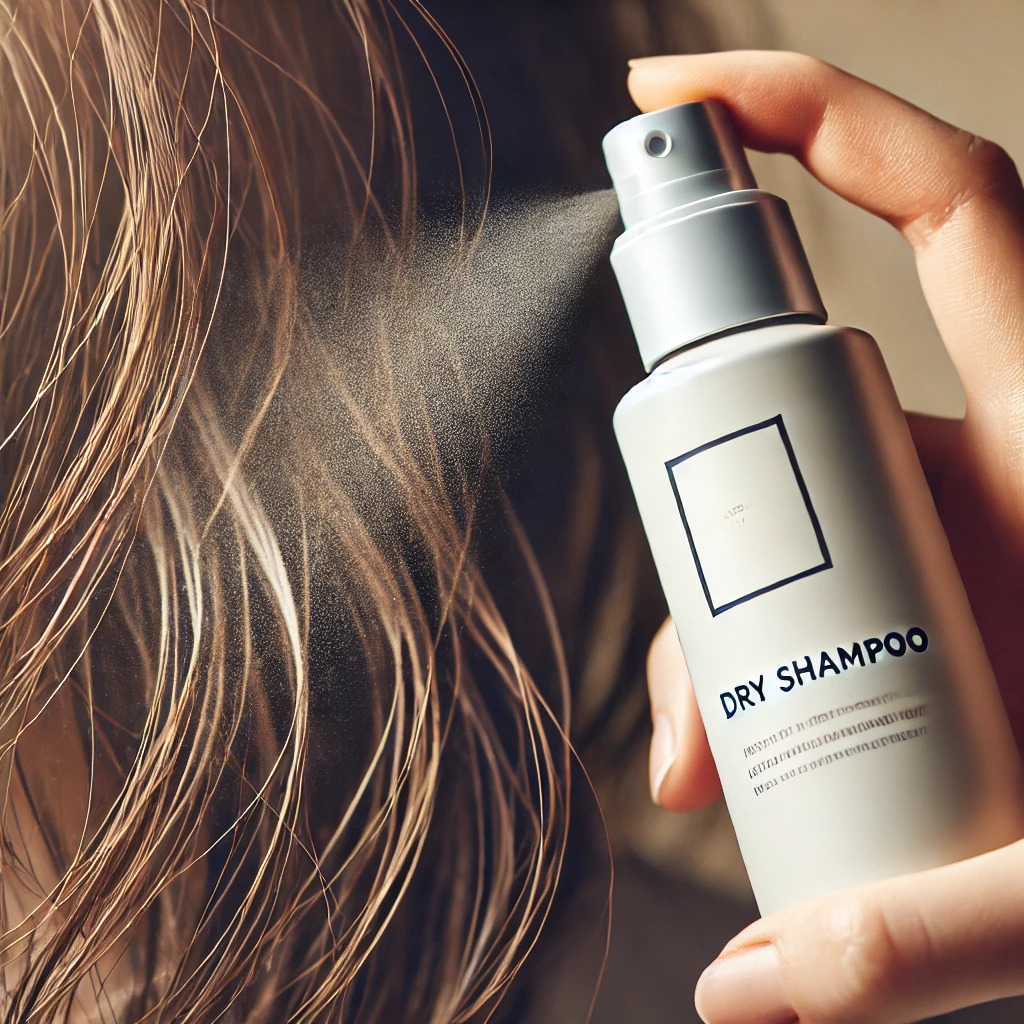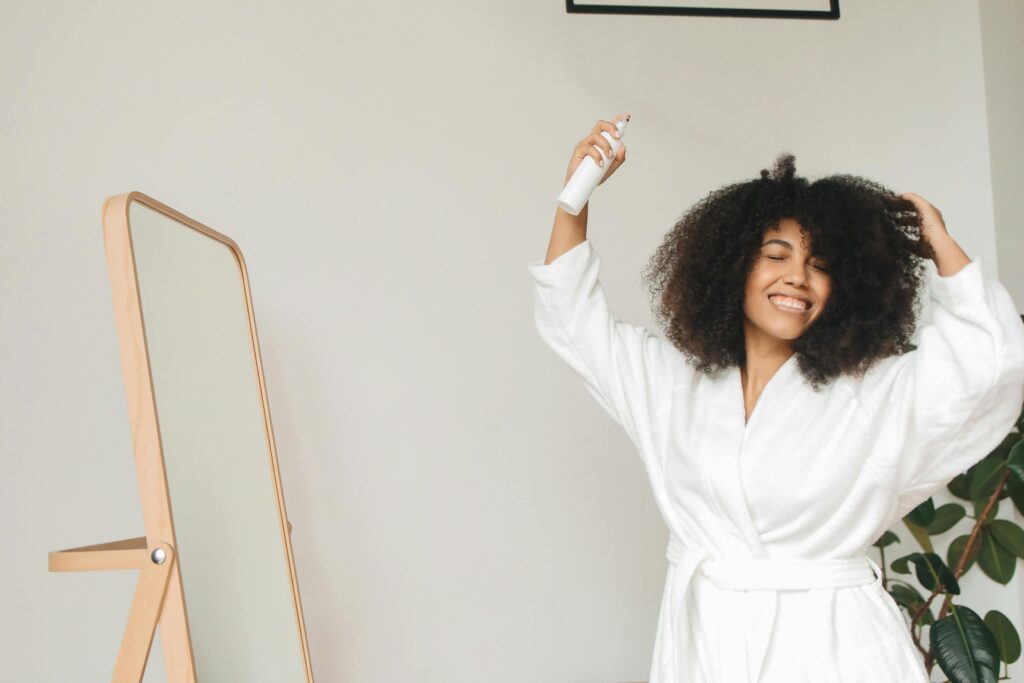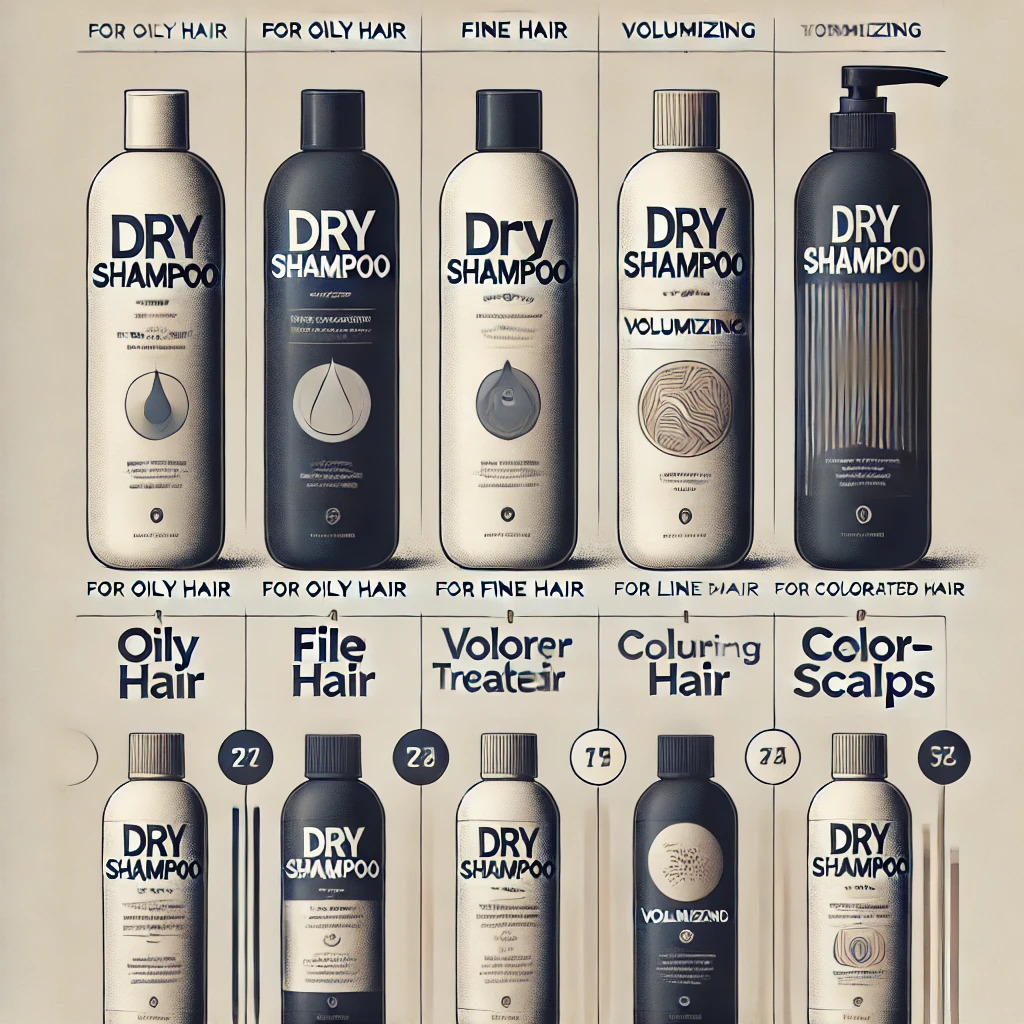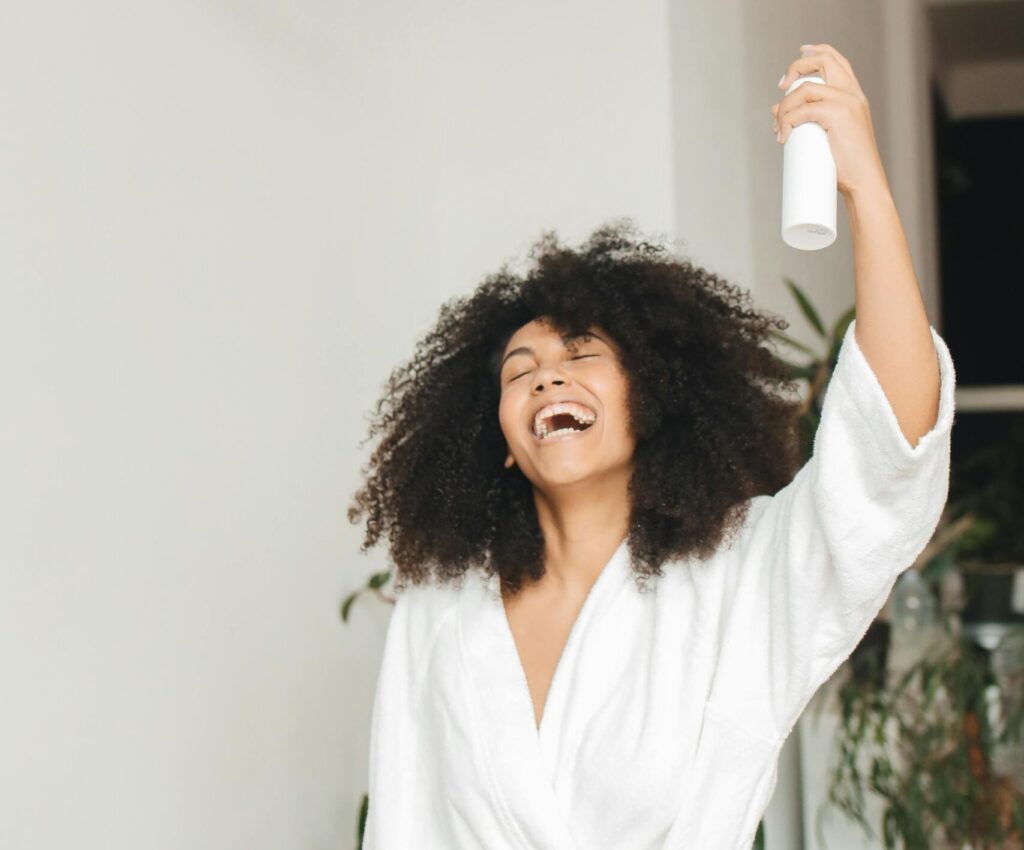Dry shampoo is a helpful solution for busy mornings, last-minute outings, or keeping your hair looking good for longer. A few sprays can quickly change oily hair into fresh, full-looking locks. However, as it gets more popular, people are starting to ask if using dry shampoo a lot can harm hair health. One big question is: Does dry shampoo cause hair thinning?
This concern has led to discussions among beauty lovers and experts. While dry shampoo is very convenient, some are worried that using it too often might damage the scalp or weaken hair over time. In this article, we will look at the truth about these worries, sort out myths from facts, and share tips on how to use dry shampoo safely while keeping your hair healthy. Let’s get started!
What Is Dry Shampoo and How Does It Work?
Dry shampoo is a hair care product that doesn’t need water to clean your hair. It’s great for saving time, keeping your hairstyle longer, or freshening up quickly. You can find it in spray or powder forms, and it’s a must-have for many people’s hair care routines.
The magic of dry shampoo is in its ingredients. Most use starches, clays, or alcohol to soak up extra oil and grease from your scalp and hair. These ingredients stick to the oils, making your hair look less greasy and feel lighter. Many dry shampoos also have nice scents, so it feels like you just had a salon visit.
Dry shampoo is not just convenient; it helps busy people by stretching the time between washes, cutting down on heat styling, and keeping hair looking full and styled. But using it too much can raise concerns about scalp health and hair strength. Knowing how dry shampoo works is important to use it well and avoid any problems.

Understanding Hair Thinning
Hair thinning is when your hair gradually becomes less dense, making it look less full. Unlike hair loss, which involves losing a lot of hair or having bald spots, thinning is more gradual. You might notice your ponytail feels smaller or your scalp is more visible as time goes on. While it’s usually not as serious as hair loss, it can still affect your confidence and raise worries about your hair health.
There are several reasons for hair thinning. Genetics is a big factor, as conditions like pattern baldness can run in families. Stress can also cause temporary thinning due to a condition called telogen effluvium, which happens after a lot of physical or emotional strain. Poor nutrition, especially not getting enough important nutrients like iron, biotin, and protein, can weaken your hair and slow its growth. Additionally, using too many styling products, like dry shampoo, can clog hair follicles and harm scalp health, leading to weaker hair.
How you care for your hair is important in preventing or worsening thinning. While products like dry shampoo can be convenient, using them too much or incorrectly may cause buildup, which can hurt hair health. This raises important questions about how to balance modern beauty routines with caring for your hair in the long run.
Does Dry Shampoo Cause Hair Thinning?
The question “Does dry shampoo cause hair thinning?” has created a lot of discussions among beauty fans and hair care experts. While dry shampoo itself doesn’t directly thin hair, using it the wrong way can lead to problems that may look like thinning hair.
One big concern is scalp health. Dry shampoo helps soak up extra oil on the scalp, but using it too much can cause buildup of the product. This buildup can block hair follicles, disturb natural oil production, and irritate the scalp. If hair follicles are blocked or unhealthy, they might struggle to grow strong hair, which can make hair look thinner.
Another issue is not keeping the scalp clean. Dry shampoo should not replace washing hair. Relying on it too often can leave the scalp dirty, allowing dirt, oils, and dead skin to build up. This can cause inflammation or even infections that affect hair growth over time.
Also, using dry shampoo too frequently can make hair weak, especially if it has alcohol or strong ingredients. Weak hair is more likely to break, which can make it seem thinner by creating an uneven look or reducing volume.
Although there aren’t many scientific studies directly linking dry shampoo to hair thinning, many dermatologists warn against using it too much. For instance, Dr. Francesca Fusco, a dermatologist focused on scalp health, says that using dry shampoo occasionally is usually safe, but using it instead of washing regularly can harm both the scalp and hair health. In the end, while dry shampoo is very convenient, it’s important to know its limits and use it wisely to keep your hair healthy and full.

Myths vs. Facts About Dry Shampoo and Hair Thinning
When it comes to dry shampoo and how it affects your hair, there are a lot of myths that can confuse the truth. Let’s clear up some common misunderstandings in a friendly way:
Myth: Dry shampoo causes hair loss.
Fact: Dry shampoo does not directly cause hair loss. Hair loss happens when hair roots get damaged or inactive, which isn’t caused by dry shampoo alone. But using it too much can cause problems on your scalp, like buildup and irritation, which might lead to thinning or breaking hair.
Myth: Using dry shampoo every day is completely safe.
Fact: While using it now and then is fine, using dry shampoo daily can lead to product buildup that clogs hair roots. This buildup can irritate your scalp and weaken your hair, making it easier to break. Your scalp needs to be cleaned regularly to stay healthy.
Myth: Dry shampoo can replace washing my hair with water.
Fact: Dry shampoo is just a quick fix, not a substitute for washing your hair with shampoo and water. If you don’t wash your hair properly, it can create an unhealthy scalp, which might affect hair growth and volume.
How to Use Dry Shampoo Safely to Avoid Hair Thinning
You can use dry shampoo without harming your hair. Here are some simple tips to enjoy its benefits without causing hair thinning:
Limit Use to 1–2 Times a Week
Dry shampoo is handy, but don’t use it too often. Try to use it just 1–2 times a week to prevent too much product from building up on your scalp. Using it too much can create problems for your hair.
Wash Your Scalp Regularly
It’s important to wash your scalp with regular shampoo to keep it healthy. Washing helps remove oil, dirt, and leftovers from dry shampoo. Aim to wash your hair every 2–3 days, depending on your hair type and how active you are.
Apply Properly
When you use dry shampoo, hold the bottle about 6–8 inches away from your scalp. This helps spread the product evenly and stops it from building up in one spot. Gently rub the product into your roots to soak up oil without overloading your scalp.
Choose Gentle, Good-Quality Products
Pick dry shampoos with few harsh chemicals like parabens, sulfates, and artificial fragrances. Look for options with gentle ingredients like rice starch or natural extracts that soak up oil without irritating your scalp.
Don’t Skip Regular Hair Care
Dry shampoo is just a quick fix, not a substitute for good hair care. Use it alongside a regular hair care routine that includes conditioning, occasional deep treatments, and scalp massages to help blood flow and hair growth.
Signs You Might Be Using Too Much Dry Shampoo
Using too much dry shampoo can cause problems for your hair and scalp. Here are some signs to look out for:
-
Itchy Scalp
If your scalp is always itchy, it might be due to product buildup, which can irritate your skin and block hair growth.
-
White Flakes or Buildup
If you see white stuff on your scalp or hair, it means the product isn’t washing out properly.
-
Heavy or Greasy Hair
Your hair might feel heavy or oily instead of fresh, which is a common sign of using too much dry shampoo.
-
Hair Shedding or Breakage
If your hair feels weak or you notice more hair falling out when you brush it, this could be from buildup harming your hair.
How to Fix It
- Use a deep cleaning shampoo once a week to get rid of residue and help your scalp.
- Try scalp treatments like scrubs or oils to calm irritation.
- Cut back on dry shampoo and create a better washing routine.

Natural Alternatives to Dry Shampoo
If you want to take a break from store-bought dry shampoos or prefer more natural options, here are some good alternatives:
-
Cornstarch or Arrowroot Powder
These common kitchen items are great for soaking up extra oil from your scalp, making your hair look cleaner. Just sprinkle a little on your roots and brush it in. They don’t have the nice smells or styling benefits that commercial dry shampoos do, so your hair might not look as polished.
-
Blotting Papers
Made for soaking up oil on your face, these papers can also work well on your scalp. They are small and easy to carry, making them good for quick fixes. However, they don’t last long and might not work well if your hair is very oily or in humid weather.
-
Homemade Dry Shampoos
You can mix natural items like cornstarch, cocoa powder (for dark hair), and a few drops of essential oil to make your own dry shampoo. This is cheaper and you can adjust it for your hair color and type. But, making it can take time, and it might not spray as easily as store-bought options.
Pros and Cons
Pros:
- Gentle on Hair and Scalp: Natural options like cornstarch or homemade mixes are free from strong chemicals, making them safer for sensitive scalps.
- Cost-Effective: Most natural alternatives use cheap ingredients you probably already have, saving you money on hair care.
- Eco-Friendly: Using reusable or biodegradable ingredients helps cut down on waste from aerosol cans and plastic packaging.
- Customizable: DIY options let you change ingredients to fit your hair type, color, or scent preferences.
Cons:
- Less Convenient: Natural alternatives often take more time to prepare and may not be as quick to use as commercial products.
- Fewer Fragrance Choices: Natural ingredients might not smell as nice as many store-bought products, which can leave your hair smelling plain.
- Shorter Effects: They can absorb oil well, but natural options usually don’t last as long as commercial ones, so you may need to use them more often.
- Messy to Apply: Powders like cornstarch or arrowroot can be tricky to apply, possibly leaving white spots or uneven coverage.

Expert Advice and Reader Stories
Hair care experts say that using dry shampoo in moderation is important. Dermatologists believe that using dry shampoo occasionally is fine, but using it too much can cause problems like buildup on the scalp, irritation, and weaker hair over time. They suggest washing your scalp regularly and picking dry shampoos with gentle ingredients that don’t clog pores.
Trichologists stress that keeping your scalp healthy is crucial. Too much dry shampoo can block hair follicles and make hair look thinner. They recommend using dry shampoo as an extra option, not a replacement for washing your hair.
Now, we want to hear from you:
- Have you seen any changes in your hair from using dry shampoo?
- What brand do you like best or what tips do you have for using it?
Final Thoughts
Dry shampoo offers a practical solution for hair care that does not inherently lead to hair loss. However, misuse—such as excessive dependence or neglecting regular washing—can harm scalp health, resulting in problems like buildup, irritation, and breakage, which may resemble thinning. At that time question like “does dry shampoo cause hair thinning” would arise in your mind. By using dry shampoo judiciously—limiting frequency, applying it properly, and ensuring a clean scalp—you can reap its advantages while preserving the health of your hair.
Keep in mind that moderation and proper maintenance are essential for achieving a balance between convenience and hair wellness. Have you encountered any instances where dry shampoo has influenced your hair? What recommendations or favorite brands do you rely on?
We would love to hear your insights! Do you have any inquiries about hair care or worries regarding the products you use? Share with us in the comments below, and let’s keep the discussion going about maintaining beautiful hair.

